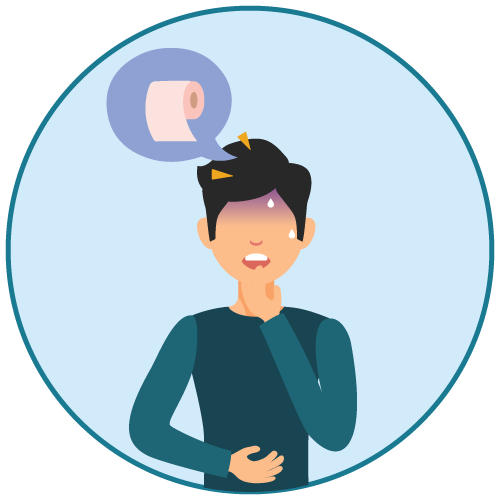| Name | Fecal Urgency |

Fecal Urgency
Fecal urgency is the intense and sudden urge to have a bowel movement. It can be accompanied by an increased frequency of bowel movements, causing inconvenience and distress. Here's an overview of the causes, signs and symptoms, treatment, and prevention strategies related to fecal urgency:
Causes of Fecal Urgency:
- Gastrointestinal Infection
- Inflammatory Bowel Disease (IBD)
- Irritable Bowel Syndrome
- Food intolerances
- Medications
- Stress and Anxiety
- Neurological disorders affecting the digestive system
- Pelvic floor dysfunction
- Certain medical conditions (e.g., Diabetes Mellitus or Hypothyroidism)
Signs and Symptoms:
- Sudden and strong urge to have a bowel movement
- Difficulty controlling or delaying bowel movements
- Increased frequency of bowel movements
- Abdominal Cramp or discomfort
- Loose or watery stools
- Bloating or excessive gas
- Urgency or fecal leakage (in severe cases)
Treatment:
The treatment approach depends on the underlying cause and may include:
-
Medications: Specific medications may be prescribed to manage symptoms or address the underlying condition, such as antidiarrheal drugs, antiinflammatory agents or condition-specific medications (e.g., for IBD or IBS).
-
Dietary modifications: Adjusting the diet can help alleviate symptoms. This may involve avoiding trigger foods, increasing fiber intake, or following a specialized diet plan recommended by a healthcare professional.
-
Stress management: Employing stress management techniques like relaxation exercises, meditation, or counseling can help manage stress-related symptoms.
-
Pelvic floor exercises: For individuals with pelvic floor dysfunction, performing exercises or undergoing physical therapy can improve bowel control.
-
Treatment of underlying conditions: If fecal urgency is caused by an underlying medical condition, such as IBD or an infection, treatment will focus on managing and treating that specific condition.
Prevention Strategies:
-
Maintain a healthy diet: Consume a balanced diet rich in fiber and stay adequately hydrated to promote regular bowel movements and prevent constipation or diarrhea.
-
Identify trigger foods: Pay attention to foods that worsen symptoms and avoid them whenever possible.
-
Manage stress: Practice stress management techniques like regular exercise, mindfulness, or seeking support from a therapist.
-
Limit caffeine and alcohol: These substances can irritate the gastrointestinal tract and contribute to bowel irregularities.
-
Adhere to medication instructions: Follow prescribed medications as directed by healthcare professionals and discuss any concerns or side effects with them.
Remember to consult with a healthcare professional for an accurate diagnosis and personalised treatment plan based on your specific circumstances.
 Bangla
Bangla English
English